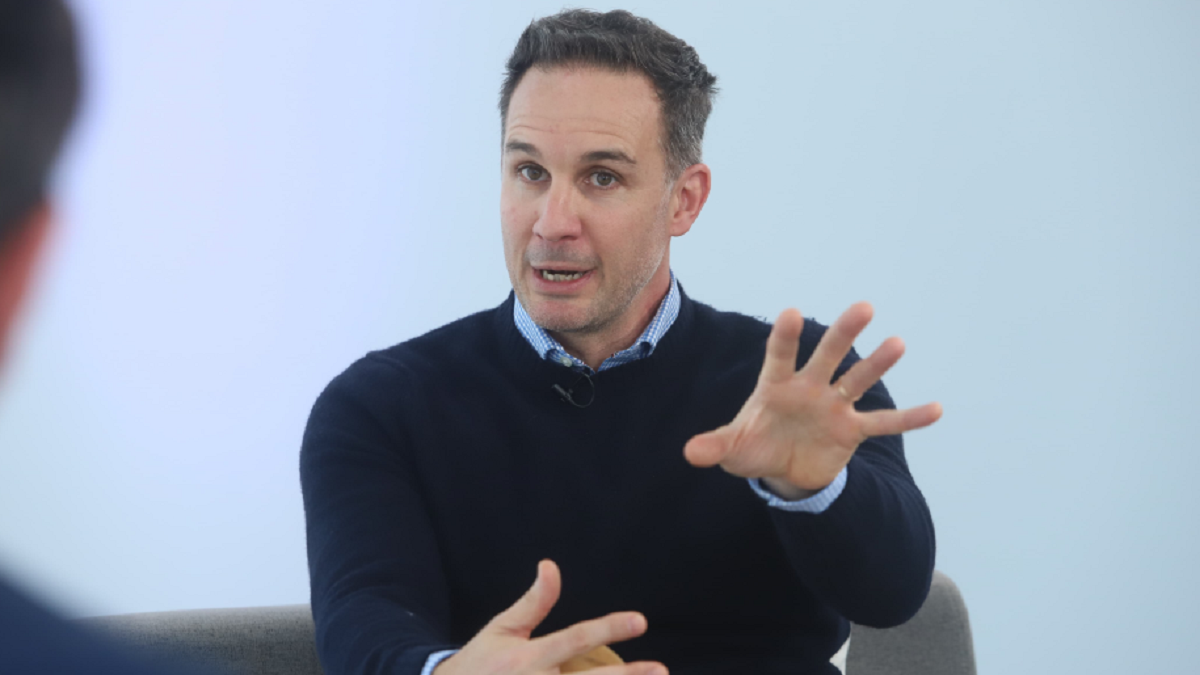Nahuel Schenone, director of the Argentine Native Forests Foundation for Biodiversity, He was the protagonist of the fifth panel on sustainable development Scope of debate.
Moderated by the editor of Ámbito, Ariel Basile, and titled “Environmental commitment”, The conversation revolved around the relationship between society, civil organizations, companies and governments to support sustainable development.
Schenone considered that “companies play a role very important because of the link they have in society with consumers” and added that “from the NGOs they transcend a little more, since Our commitment is at a social level, but also building bridges with companies and governments, in a search for greater sustainability of actions, both by consumers in large cities, as well as by private companies and their responsibility in environmental terms.”
“From the NGOs, what we often seek is to build those bridges between societies, governments and the private sector in order to amalgamate or generate a balance in this type of sustainable development, where each of us focuses on our areas but the NGOs clearly focus on being able to go down to create more sustainable spaces and links between the actors,” he summarized.
A look at articulation for sustainable development
The Argentine Native Forests Foundation for Biodiversity emerged “in the field of environmentalism but with a sustainable development perspective, not an ultra-conservationist perspective,” The director explained that the objective is “to allow us to think about how to develop, how to include science and technology in the Argentine natural environment and for development.”
pnel12.png
“We need to develop as a country, as people and as citizens. This uses resources and from the environmental perspective we can seek to achieve a balance in this development and transmit sustainability. It is a more difficult exercise than pure conservationism, but it is satisfying to be able to involve more social actors in this search for general sustainability.”
Carbon neutrality and the importance of nature
In this regard, Schenone indicated that “The global agenda calls for carbon neutrality as a way to offset global warming “If we consider that it is a consequence of emissions,” but added another axis: “Many times we offset carbon, but we lose nature. So, one of the trends that is coming globally today and from our organization we take it as our own is how we improve diversity in production systems. That is, not only being carbon neutral, but taking into account the impact of companies on nature.”
“Each tool has its cycle and its objectives. There are many companies globally that are already taking stock of nature in their production chain. It is something new, an agenda that is being worked on from the Montreal Summit”, held.
In that tone, he added that “now comes one in Colombia where one of the most important points is the commitment of companies to nature, both from the point of view of how they depend on and how nature contributes to productive models.” This is where NGOs play a fundamental role in seeking models that help compensate and help companies to be able to navigate this new path recently introduced on the international agenda,” he said.
When referring to the biodiversity, put the spotlight on “its potential as a generator of resources for the industry and to be part of a global sustainability model.”
On the other hand, he minimized the president’s criticism. Javier Milei to the agenda 2030 and the rejection of UN Future Pact. “Today, the global agenda is in place and there are a lot of international commitments and agreements signed that transcend negotiations, because there are already commitments made in prepared projections,” he argued and stressed that “the agenda is still standing and companies will look to see what is coming.”
Argentina’s potential
Meanwhile, Schenone stressed that “Argentina has a lot of market value in environmental terms, in terms of nature and resources,” He also said that the use of resources is “very well regarded” at an international level. “I see a future with harmonious growth and global markets accepting this balance. This means less pollution,” he said.
“Argentina has a lot of water, but it is poorly distributed. The water issue is extremely important and is on the agenda. There was recently a very large flood in Brazil and takes the dimension of the problem both in excess and in deficiencies, as occurs in Cordova”, He illustrated and pointed out: “People and companies have the responsibility for their water footprint, which is a way of bridging their commitment. NGOs play the role of bringing those parts together.”
About the forest fires, He described the situation as “a loop” and called for strengthening prevention, as well as “being able to incorporate environmental variables back into management models, because we already know that The Boy and the Girl These are two climatic conditions that affect us and we cannot be exempt from this in our early warning and mitigation policies,” for which he proposed a joint effort between the Nation and the provinces.
Finally, he called for “the productive view to begin to take these dimensions of nature into account in its productive schemes and in its business models” and asked businessmen “They should be open to dialogue with NGOs, because we are not activists or people who are looking to generate a negative impact on the corporation, but rather to find points of balance.”
Source: Ambito




